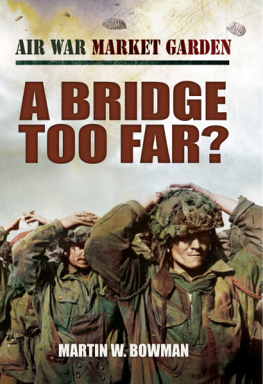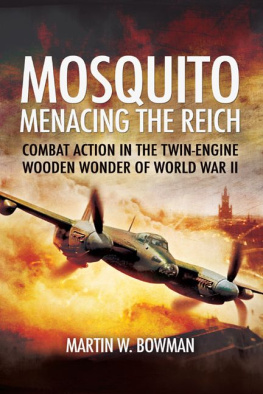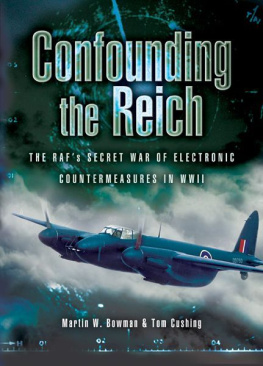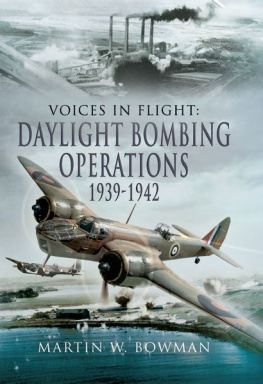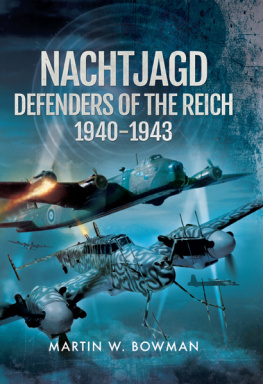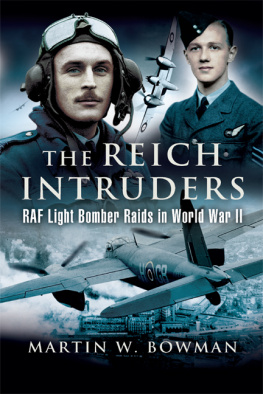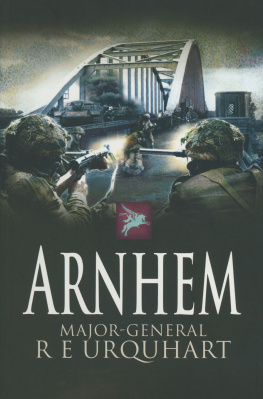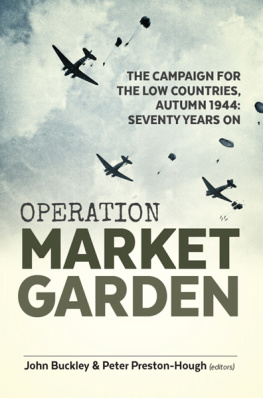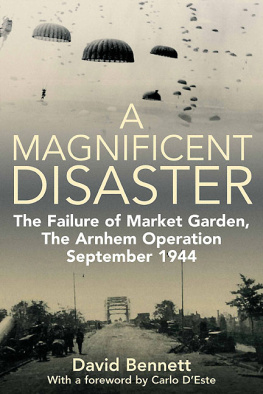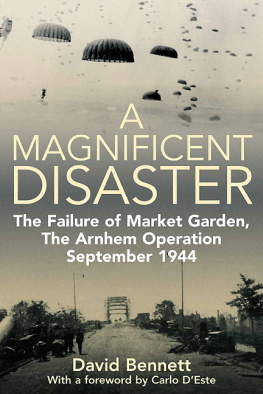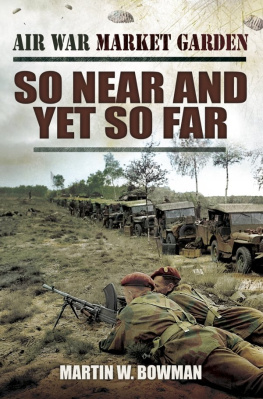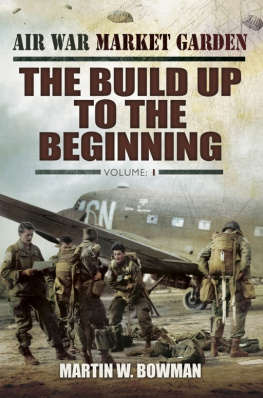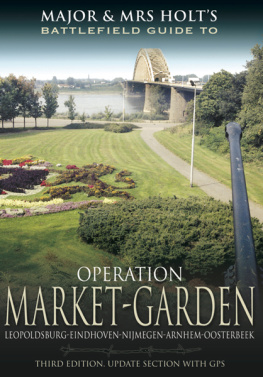Other volumes in this series
Air War Market Garden: The Shrinking Perimeter
Volume 1 | The Build-Up To The Beginning |
Volume 2 | So Near And Yet So Far |
Volume 3 | The Shrinking Perimeter |
First Published in Great Britain in 2013 by
Pen & Sword Aviation
an imprint of
Pen & Sword Books Ltd
47 Church Street, Barnsley, South Yorkshire S70 2AS
Copyright Martin W Bowman, 2013
HARDBACK ISBN: 978-1781591-76-5
PDF ISBN: 978-1473830-94-3
EPUB ISBN: 978-1473829-78-7
PRC ISBN: 978-1473830-36-3
The right of Martin W Bowman to be identified as author of this work
has been asserted by him in accordance with the Copyright,
Designs and Patents Act 1988.
A CIP catalogue record for this book is
available from the British Library.
All rights reserved. No part of this book may be reproduced or transmitted in
any form or by any means, electronic or mechanical including photocopying,
recording or by any information storage and retrieval system, without
permission from the Publisher in writing.
Typeset in 10/12pt Palatino
by GMS Enterprises
Printed and bound in England by
CPI Group (UK) Ltd, Croydon, CR0 4YY
Pen & Sword Books Ltd incorporates the Imprints of Pen & Sword
Aviation, Pen & Sword Family History, Pen & Sword Maritime, Pen & Sword
Military, Pen & Sword Discovery, Wharncliffe Local History, Wharncliffe
True Crime, Wharncliffe Transport, Pen & Sword Select, Pen & Sword
Military Classics, Leo Cooper, The Praetorian Press, Remember When,
Seaforth Publishing and Frontline Publishing.
For a complete list of Pen & Sword titles please contact
PEN & SWORD BOOKS LIMITED
47 Church Street, Barnsley, South Yorkshire, S70 2AS, England
E-mail:
Website: www.pen-and-sword.co.uk
Contents
Acknowledgements
I am enormously grateful to the following people for their time and effort and kind loan of photos etc, not least to my fellow author, friend and colleague, Graham Simons, for getting the book to press-ready standard and for his detailed work on maps and photographs: My thanks and sincere appreciation to Nigel McTeer, whose uncle, a man by the name of Maloney, fought at Arnhem and killed two Germans, one with a pair of scissors and one by putting sand in his mouth. Thanks are due in no small measure to The Pegasus Archive website and the Maroon Berets online news magazine for the wonderful collections of first-hand accounts faithfully compiled by the Association, its members and siblings of members. And to Deryk Wills, author of Put On Your Boots and Parachutes! My other favourite books on Arnhem and Market-Garden include The Longest Day by Cornelius Ryan, A Tour of the Arnhem Battlefields by Major John Waddy, Arnhem Lift by Louis Hagen MM and of course Arnhem 1944: The Airborne Battle by Martin Middlebrook. My sincere thanks as always to Libby, Jenny and Lesley at the 2nd Air Division Memorial Library in Norwich. And also to Jim Borrett.
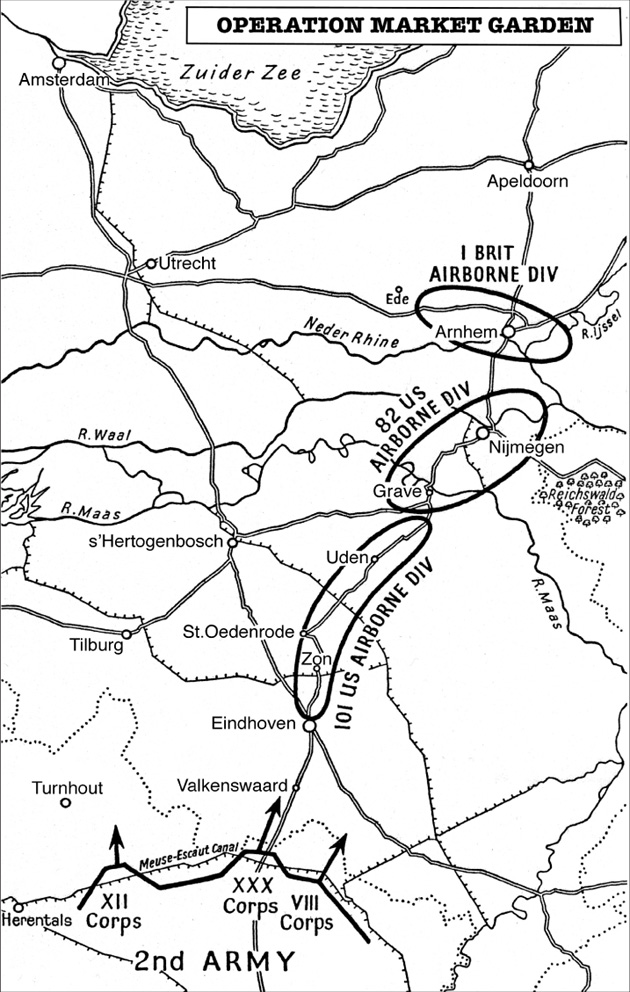
Chapter 1
Tomorrow Never Came
We kept hoping - when is the Army coming? The officers - they didnt know - but as a morale boost they said, Theyll be here tomorrow. Tomorrow never came.
Private Johnny Peters, 1st Battalion The Border Regiment. His mother in Liverpool was shown a picture of her son in the Daily Express which was captioned They Fought Like Lions and she promptly collapsed.
On 23rd September the Germans knew exactly where we were and were starting to be extremely offensive recalled Lieutenant Colonel Robert Payton-Reid commanding the KOSB, who was wounded in the shoulder but remained at duty. They had a technique. First of all, they used 20 mm cannon across the roofs of the houses. Then they shelled the houses again, the top storeys, which got everybody below. Then, under cover of this, they had got an odd tank which came and blew the house down. While all this was going on they had infiltrated machine guns into position. For the first 48 hours we had no sleep and an average of two or three hours every 24. We had been on one third rations ever since the White House. At this stage we had no rations at all so we dug vegetables and got stores out of the Dutch houses. We gave everyone a hot meal every day. There wasnt much water and we hadnt any tea. Very few cigarettes.
Exhaustion took its toll on many of the defenders, to the point where some people almost wished that they would be wounded so that they could rest. Payton-Reid observed that Lack of sleep is the most difficult of all hardships to combat. Men reached the stage when the only important thing in life seemed to be sleep. He fell victim to this himself whilst calling a Battalion conference of three men besides himself, one of which was his new Second-in-Command, Captain Walker and also his ever present bodyguard Staff Sergeant Tilley. As the meeting progressed the men became increasingly weary and as Payton-Reid talked he could hear his own voice growing more distant, then one man collapsed on the table asleep, followed by another and soon all of them lost consciousness. Payton-Reid was the first to awaken and on so doing he roused the others.
As the battle wore on and approached its conclusion, Payton-Reid wrote that he was glad to see the 24th grow to its melancholy close. The high hopes of early support by ground forces was a subject, now, by mutual consent, taboo. By Sunday 24th I had six officers, myself and under 100 men. As he was at the 1st Airlanding Brigade HQ, helping to prepare for the withdrawal of the units on the western side of the Perimeter, he heard Brigadier Hicks mutter a remark about another Dunkirk.
Bad weather on 24 September once again halted all troop carrier missions from England. In the morning, rain lashed England and the Continent. Overcast hung unbroken at 300 to 800 feet and winds of 25 to 30 mph swept across the airfields. Conditions improved somewhat over southern England in the afternoon, but not
It had been a noisy night, with lots of shooting and shouting or orders by the enemy but nothing materialised wrote Lieutenant Michael Dauncey of the Glider Pilot Regiment. In the morning the SPs, mortars and small arms continued their pressure on us and I had some little bits of a mortar bomb in my shoulder, but nothing to worry about. To get a better angle to spot an enemy marksman a South Stafford and I went a little way down the street near to the school. We went upstairs but after half an hour smoke started to fill the room so that we couldnt see. On investigating downstairs we found some chaps round a huge smoking fire in the school hall, on which was a large tin bath full of dead chickens being cooked! In the afternoon, we were still looking for the enemy marksman. To get a different view I went to the top of the house to a little dormer window. Unfortunately, he spotted me first. The bullet hit a stovepipe by my head and a splinter from the pipe struck me in the left eye, over which a dark red film spread, blinding me at once. A paratrooper tried to get the metal out of my eye with a couple of matches, but without success, so it had to be left. This was the day that a paratrooper paid the Glider Pilot Regiment a real compliment, when he said how glad he was to be fighting with us. It was so simple - yet so sincere. For my part, the Airborne soldiers and paratroops with me were outstanding; it was a real privilege and honour to fight with them. They never wavered nor complained and always put their friends first.
Next page
